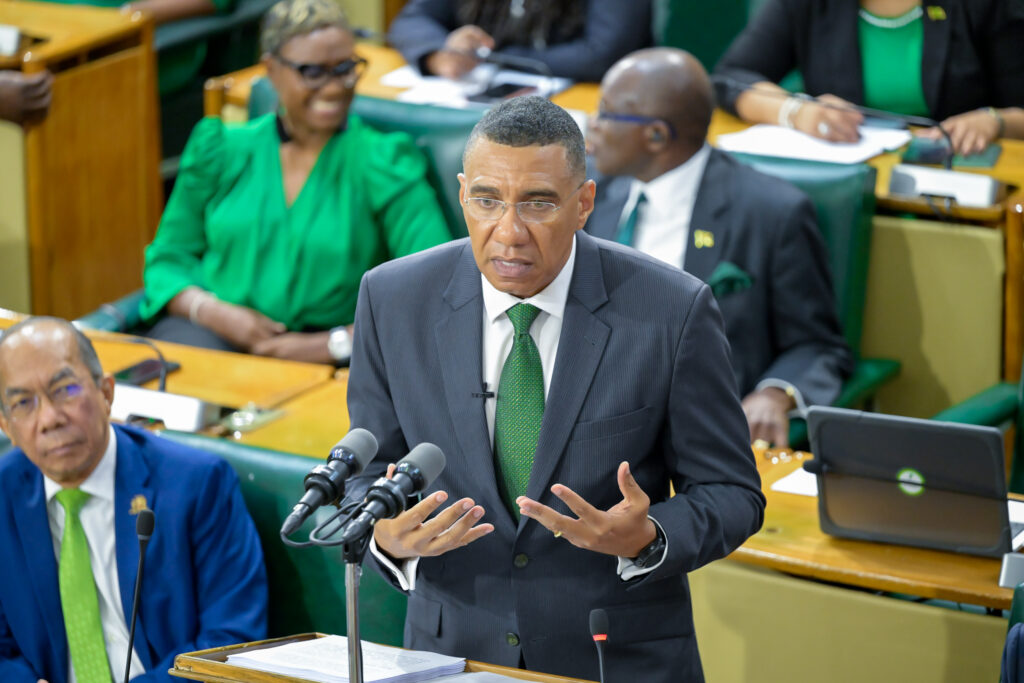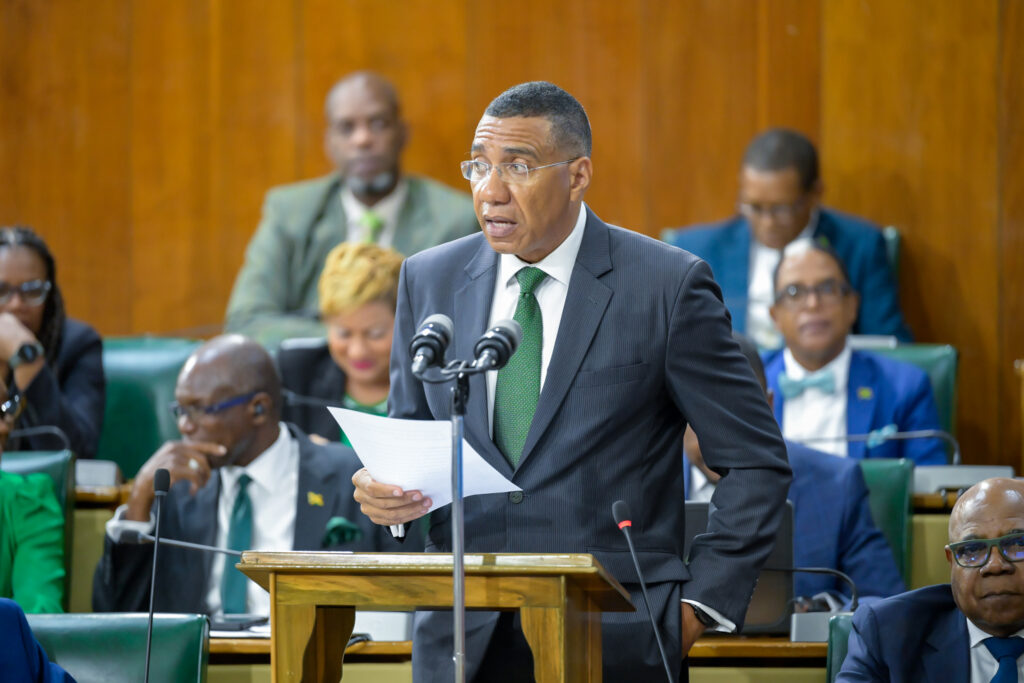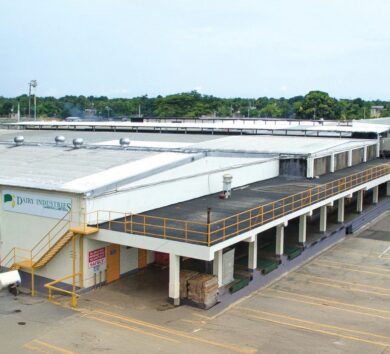

Prime Minister Andrew Holness’s 2025 Budget Speech, titled Jamaica’s Next Chapter: Accelerating Growth for Your Peace, Productivity & Prosperity, outlines a strategic vision aimed at enhancing Jamaica’s economic resilience, stimulating investment, and fostering an environment conducive to private sector growth.
The PSOJ recognizes several key initiatives within the budget that directly impact business operations, investment attractiveness, and economic expansion.
Macroeconomic Stability and Private Sector Confidence
Debt Reduction and Fiscal Responsibility
The government’s commitment to reducing the debt-to-GDP ratio from 120% in 2016 to approximately 68.7% in 2025 is commendable, as stated in the Prime Minister’s presentation. The PSOJ acknowledges that a lower debt burden enhances macroeconomic stability, lowers borrowing costs, and fosters an environment where businesses can thrive without the fear of sudden fiscal shocks. Continued fiscal prudence will be crucial in maintaining investor confidence.

Inflation Control and Exchange Rate Stability
The Prime Minister’s presentation reported a reduction in inflation to 4.4%, within the Bank of Jamaica’s target range of 4-6%, and an average exchange rate depreciation of 2.9% per annum over the past nine years—the lowest in decades. This stability benefits importers and exporters, reduces business uncertainty, and improves long-term planning.
Taxation Policies and Business Competitiveness
No New Taxes and Business Incentives
For the eighth consecutive year, the government has introduced no new taxes, reinforcing a predictable fiscal environment that benefits businesses. Additional tax reductions, including a lower GCT rate for residential electricity (from 15% to 7%) and an increase in the GCT registration threshold from JMD 10 million to JMD 15 million, provide relief for small and medium-sized enterprises (SMEs). These measures are in alignment with PSOJ’s advocacy for a more business-friendly tax regime.

Wealth Creation through Public Listings
The Prime Minister highlighted the oversubscription of the TransJamaican Highway share offer, which attracted over 22,000 applications totalling J$12 billion. This demonstrates increased public participation in wealth creation and aligns with PSOJ’s push for greater financial market inclusion.
Infrastructure Development and Business Productivity
Transportation and Logistics
The Prime Minister’s presentation detailed that the Southern Coastal Highway Improvement Project is now 95% complete, with the final segments expected by June 2025. Additionally, the J$45 billion SPARK Project aims to rehabilitate roads across all constituencies, improving supply chain efficiency and reducing transportation costs.
Water and Energy Resilience
The Prime Minister announced a J$28 billion Western Parishes Water Supply Project, benefiting over 250,000 residents and businesses. Furthermore, investments in renewable energy and water security initiatives will enhance industrial sustainability and resilience.
Human Capital Development and Workforce Readiness
Apprenticeship and Skills Training
The Prime Minister reported that over 552,000 individuals have been trained through the HEART/NSTA Trust since 2020. The new Expanded Apprenticeship Programme, targeting construction and hospitality, will provide stipends of J$13,500 – J$16,500 per week to trainees, supporting workforce readiness and economic mobility.
STEM and AI Integration
The government is investing J$400 million in STEAM labs and launching an AI Lab in partnership with the Amber Group. These initiatives will drive digital transformation and enhance competitiveness in the global technology sector.

Security and Crime Reduction: Business Impact
The government’s data-driven crime-fighting strategy has resulted in a 19% reduction in murders in 2024, according to the Prime Minister’s presentation. Additionally, major crimes have declined by 21%, and the number of active gangs has dropped from 350 in 2016 to under 100 in 2025. This progress, alongside investments in national security infrastructure, creates a safer business environment.
Evaluation of Growth Initiatives and Their Impact
Effectiveness of Proposed Initiatives
The budget outlines several growth initiatives aimed at accelerating economic development. While these are positive steps, their meaningful impact will depend on execution, regulatory efficiency, and sustained investment.
- Infrastructure Projects: The Southern Coastal Highway and SPARK Project are expected to improve business logistics. However, concerns remain about delays in project completion, as previous infrastructure initiatives have experienced setbacks.
- Business Incentives and Tax Reductions: The increase in the GCT threshold for SMEs and targeted tax reductions provide some relief, but broader tax reforms, including lower corporate tax rates, would further enhance private sector growth.
- Workforce Development: The expansion of training programmes is beneficial but ensuring that graduates are aligned with private sector needs remains a challenge. The government must facilitate stronger collaboration with industry stakeholders.
- Crime Reduction Measures: The reductions in crime rates are encouraging, but long-term success will require sustained investments in judicial reform and community policing.
Potential Challenges
- Bureaucratic Red Tape: Despite fiscal improvements, businesses continue to face regulatory delays. Further efforts are needed to streamline investment approvals and licensing.
- Execution Risks: Many of the proposed projects depend on timely execution. Historical delays in infrastructure and economic reform efforts raise concerns about follow-through.
- Global Economic Conditions: Inflationary pressures, supply chain disruptions, and foreign investment trends could impact the effectiveness of the budget’s initiatives.
The PSOJ commends the government’s focus on macroeconomic stability, tax predictability, infrastructure expansion, and workforce development. However, we urge continued emphasis on bureaucratic reform to improve the ease of doing business and expedite investment approvals. While the proposed initiatives hold promise, their success will ultimately depend on execution efficiency, private-sector collaboration, and adaptability to economic challenges. Collaboration between the private sector and the government remains essential to ensuring these policies translate into tangible economic gains for all Jamaicans.







Comments